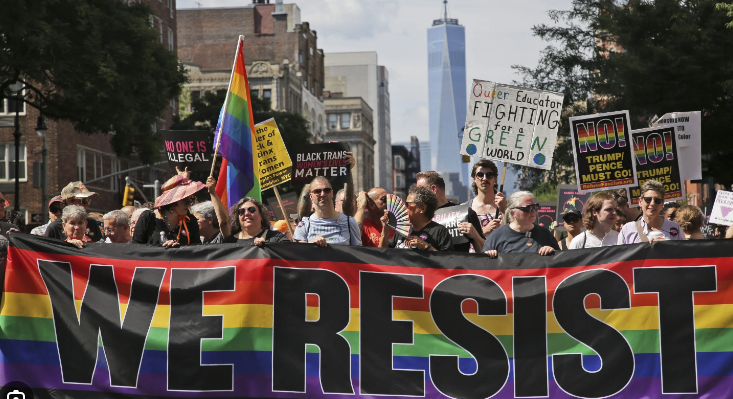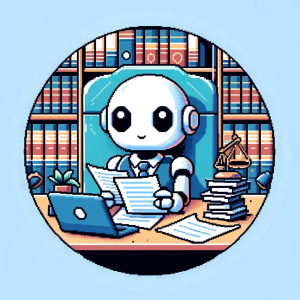
How Counter-Terrorism Laws are Choking Civil Society
What do climate activists, LGBTQ+ support groups, and humanitarian organizations have in common? According to counter-terrorism laws worldwide, they could all be threats.
Yes, you read that right. Governments have long justified harsh regulations in the name of national security. Still, a growing body of research reveals an unsettling side effect. These laws are being used to shut down charities, silence activists, and restrict civil society organizations (CSOs) that have nothing to do with terrorism. So, is this just collateral damage, or is something more strategic happening?
Let’s explore the surprising ways counter-terrorism measures (CTMs) are shrinking civic space and what this means for democracy.
How Did We Get Here?
After the September 11, 2001 attacks, governments around the world scrambled to tighten security. New laws were passed to track financial transactions, restrict funding sources, and place heavy regulations on nonprofits suspected of facilitating terrorism. Sounds reasonable, right?
The problem? These laws were often vague, giving governments a free pass to target any organization they found inconvenient. Suddenly, groups advocating for human rights, healthcare, and education were caught in a web of suspicion.
According to a systematic review of 83 studies, this trend has exploded over the past two decades. The research shows that counter-terrorism measures have become a convenient tool for governments to control, silence, or even eliminate organizations that challenge their authority.
The 4 Ways Governments are Silencing Civil Society
It turns out, there’s a playbook for shutting down civil society under the guise of counter-terrorism. Here are the four main tactics states use:
1. Strategic Exclusion & Legal Ambiguity
Governments are crafting vague counter-terrorism laws with language so broad that they can be applied to nearly any organization. In some countries, simply associating with an “informal member” of a blacklisted group could land a nonprofit in hot water. Even peaceful protests or advocacy work have been labeled “acts of terrorism.”
Example: In Nigeria, an “illegal strike” could be considered terrorism under the country’s counter-terrorism law. That means labor unions and worker advocacy groups operate under constant threat.
2. Securitization of Foreign Aid
Foreign aid has become a security issue. Many international donors now vet CSOs based on counter-terrorism laws, meaning organizations that are critical of governments—or even just operate in certain regions—can lose their funding overnight.
Example: In Afghanistan, NGOs that previously received international aid for humanitarian work now face extreme scrutiny. Funds are frozen, delayed, or completely cut off, forcing organizations to shut down.
3. Co-Optation & Control
Governments divide CSOs into “good” and “bad” groups. Those that comply with state agendas get funding and legal status, while those that criticize policies get shut down. This has led to the rise of government-backed nonprofits that exist purely to support state narratives.
Example: In Russia, independent human rights organizations are labeled as “foreign agents” and face constant legal battles, while government-aligned CSOs continue operating freely.
4. Criminalization of Political Advocacy
Many governments now criminalize advocacy work, especially when it challenges state power. Groups fighting for human rights, LGBTQ+ rights, or environmental protection are frequently accused of terrorism-related activities.
Example: In Hungary, Viktor Orbán’s government accused George Soros’ Open Society organizations of supporting terrorism simply because they advocated for migrant rights. (side note: For such a powerful boogieman, I couldn’t tell you anything about Soros except he might donate money?)
The Domino Effect: Why This Matters to Everyone
Think these policies only affect a few niche organizations? Think again.
1. Humanitarian Crises
CSOs play a critical role in delivering aid to conflict zones, responding to disasters, and advocating for marginalized groups. When these organizations are restricted, people suffer. In Uganda, for instance, government crackdowns on advocacy groups have resulted in fewer protections for LGBTQ+ citizens, increasing violence and discrimination.
2. Declining Democracy
Civil society acts as a check on government power. When nonprofits and advocacy groups are silenced, corruption flourishes. Research suggests that countries with stricter CTMs see higher levels of authoritarianism, fewer press freedoms, and increased state violence.
3. The Precedent Effect
Once a country successfully uses counter-terrorism laws to restrict civil society, others follow suit. There’s evidence that governments are learning from one another—creating a dangerous cycle of repression that spans continents.
How CSOs Are Fighting Back
Despite the mounting pressure, CSOs aren’t going down without a fight. Their responses have been varied:
- Compliance & Adaptation: Some organizations have restructured, changing their focus from activism to service delivery to stay within legal limits.
- Going Underground: Others have moved their operations into digital spaces or informal networks to avoid government interference.
- Legal Challenges: Groups are suing governments over restrictive laws, with mixed success.
- International Advocacy: CSOs are forming coalitions to push back against CTMs at the global level, pressuring international bodies like the UN and the European Union to intervene.
What Can Be Done?
So, what’s next? A few key steps can help reverse the tide:
- Push for Greater Transparency: Governments need to justify why CSOs are being targeted under counter-terrorism laws.
- Protect Funding Channels: International donors must ensure their funding mechanisms don’t inadvertently support government repression.
- Strengthen Legal Protections: Courts and international bodies should challenge ambiguous laws that are used to restrict civil society.
- Public Awareness & Advocacy: The more people know about these issues, the harder it becomes for governments to justify their actions.
Let’s Explore Together
What do you think?
- Have you ever seen an organization in your country face unfair scrutiny under counter-terrorism laws?
- Should governments have the power to regulate nonprofits in the name of security?
- What’s the best way for CSOs to fight back?
Share your thoughts in the comments, and if this story resonated with you, pass it along! Civil society thrives when we all stay informed and engaged.
Unlock Science Secrets:
Science is under threat, and your knowledge is your power. This Week in Science offers groundbreaking insights, revolutionary research, and transformative discoveries to arm you with the facts in an increasingly polarized world. Our free weekly newsletter is perfect for educators and science lovers alike. Don’t wait—subscribe now to deepen your understanding and stand with science. If you liked this blog, please share it—your referrals help us keep science accessible to everyone.



